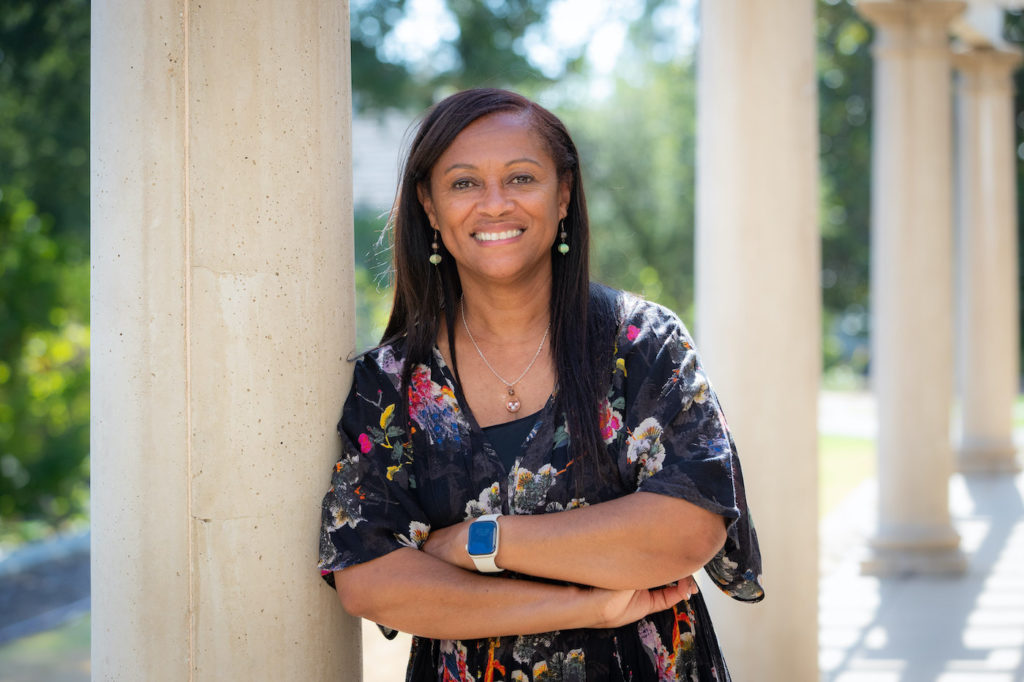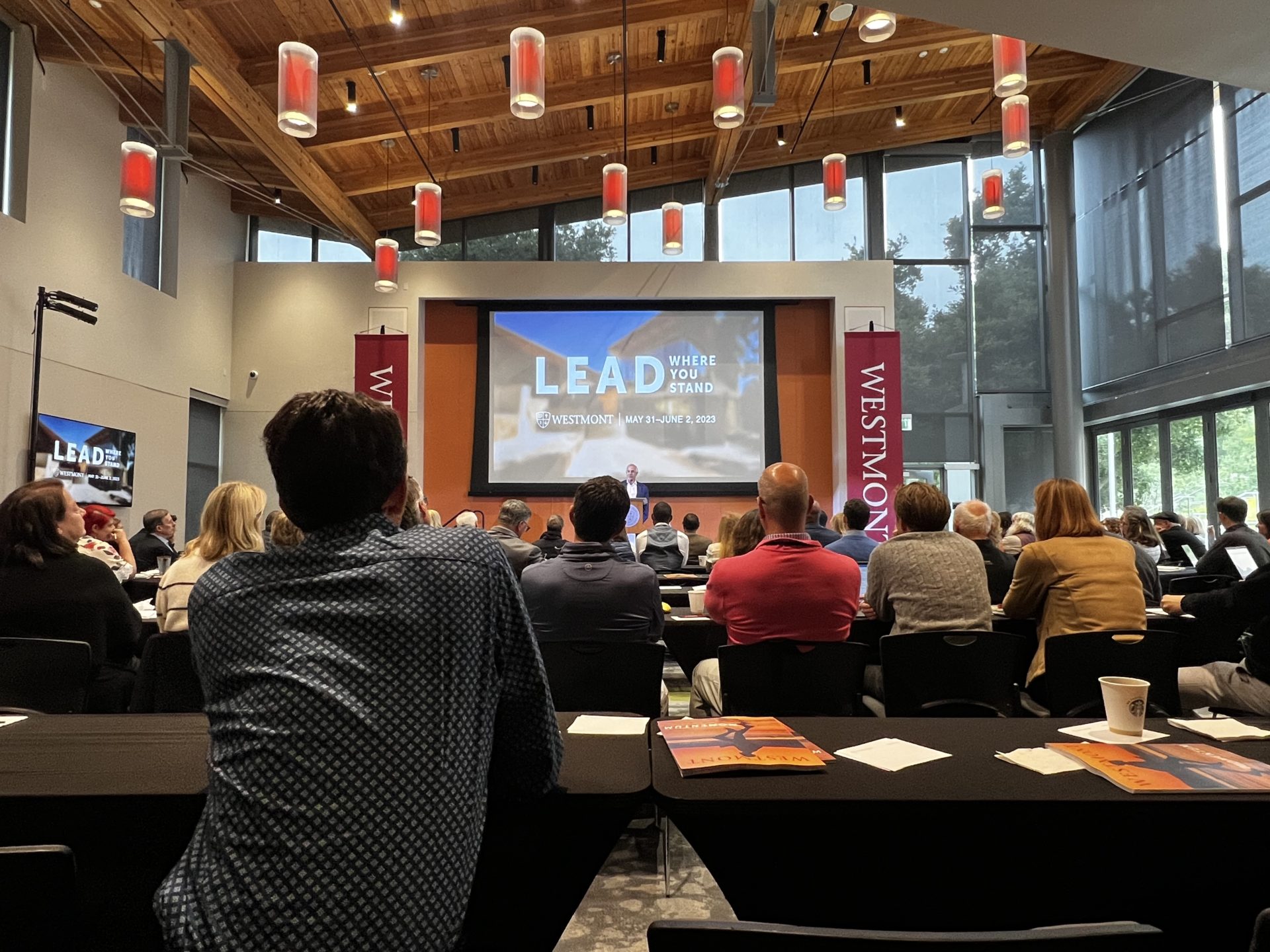The Lead Where You Stand conference is an intersection of different experts sharing transferrable leadership principles that stem from a compass of morality and integrity as a single source of truth. It was created by Dr. Gayle Beebe, President of Westmont College , in partnership with Dr. Reed Sheard, VP for Advancement and CIO at Westmont. The content explores transformative ideas to apply to non profit, for profit or government leadership roles. It is a practical conference that provides tools and insights to hrive amid the complexity of effective leadership. This year featured many speakers who spoke to these themes. From the pages of notes I was reviewing, here are my top three best principles to apply from the conference.

Principle One: Do the Next Right Thing
Dr. Charity Dean, CEO and Co-Founder, The Public Health Company
Dr. Dean shared stories about her journey to leadership and how her grit in the “in-betweens” prepared her for being part of an eight-person group code-named “The Wolverines”. This team helped inform the COVID response for our entire country. She shared story after story of setbacks and how hard they were in the moment. But over time, she charted how those crucible moments prepared her for what was next.
Be faithful in the little things and have a heart and lens of learning all of the time.
Dr. Charity Dean
The lesson is that you never know what being faithful in the hardship today will be preparing you for tomorrow. Another impactful nugget for this current season of my life and work is “Do the next right thing”. I am a planner, a strategist and problem-solver. Mapping out a long-range plans give me comfort in the immediate moments. Sometimes it’s hard to traverse valley experiences or adversity without having even a few small wins. But the reminder to simply do the next right thing brings me comfort that I can balance faithfulness to the long view with faithfulness for today. Small moments each day will add up to big moments in the long view.
Dr. Dean’s memorable quotes:
- “It doesn’t matter if you are qualified. It matters if you are willing and able”
- “The valley is your leadership boot camp”
- “Decline the armor and use your slingshot”
- “Do the next right thing”
- “You are only able to handle complexity by doing it”
- “We are called to willingness, not to be qualified”
- “Our character is formed through 1000 moments of silent grit”

Principle Two: When you listen to someone’s story, you help them write theirs
David Brooks, Author, New York Times columnist and bestselling author
David Brooks is one of my favorite speakers. He speaks more meaning in one paragraph than I can in a month of words. His book “Road to Character” is one of my top-five most important reads. This year Brooks had three talks that focused on empathy and listening. He unpacked the idea that when we ask people to tell their story and listen, we actually help them write their story. We rarely have people ask us about the story of our lives. People don’t ask us to reflect back or even look ahead. We are normally focused on our what and how, the weather, problems at work, someone we’re upset with, car trouble, our sports teams losing, etc. Rarely are we asked about our why. And many times – most times – we know what our next steps in life are. We just need someone to listen, ask better questions and lead us where we know we really need to go.
“When you listen to someone’s story, you help them write theirs”
David Brooks
One story he shared this year that was of particular impact as he spoke about relationships was about is wife, Ann. He shared a beautiful visual of what it meant to graft into someone’s life that you love deeply. He likened it to “being part of her music”. I loved that visual of how I see my most important relationship: Grating into the beautiful music of my wife Micki.
David Brooks’ memorable quotes:
- “Character is the main object of education”
- “Even when the chips are down, choose to see with a moral lens”
- “Moral leaders create moral ecologies”
- “Elicit people’s life stories”
- “When you listen to someone’s story, you help them write theirs”
- “Be part of their music”

Principle Three: Be productive by slowing down. Hurry robs us of the ability to love, joy and peace
Kim Battle-Walters Denu, Provost and Dean of the Faculty, Westmont College
Dr. Kim presented some great leadership principles taken from the Bible story of David and Goliath. Her message was incredibly insightful as I think about where I am, who I am and what I need to be focused on for today. One key principle “your past prepares you for your future” undergirded Dr. Charity Dean’s earlier presentation and ideals. But probably Dr. Kim’s most impactful principle was “Be productive by slowing down”. I’ve heard this before and have read lots of books and posts on it. It’s a weakness for me. I’ve never really been quite able to master this discipline. She shared, “hurry robs us of the ability to love, ability to have joy and ability to have peace.” I am actively working on creating a better balance in life beginning with saying no more often and being okay to disappoint people by not meeting their expectations. It’s incredibly difficult for me to do this. It’s one of my next great challenges, but one that was affirmed by Dr. Kim as something worthy of my aspiration and effort.
Be productive by slowing down. Hurry robs us of the ability to love, joy and peace
Dr. Kim Battle-Walters Denu
Dr. Kim’s most memorable quotes:
- “Face Your Giants: Giants we don’t address now address us later”
- “Lead Authentically: David was given Saul’s armor to fight Goliath, but it weighed him down. Know who you are, both strengths and weaknesses and lead from who you are”
- “Your Disadvantage is your Advantage: David was unknown, small, could move quickly, fought from a distance”
- “Your past prepares you for your future – bumps and all: Years as a shepherd protecting sheep was his preparation ground”
- “Be productive by slowing down: Hurry robs us of the ability to love, joy and peace”
If you’re interested in recharging for your life and leadership, consider registering for Lead Where You Stand. It is always the first week in June. Registration goes live in the spring. Message me and I’ll be happy to connect you to the leaders and roll out the red carpet for you.



